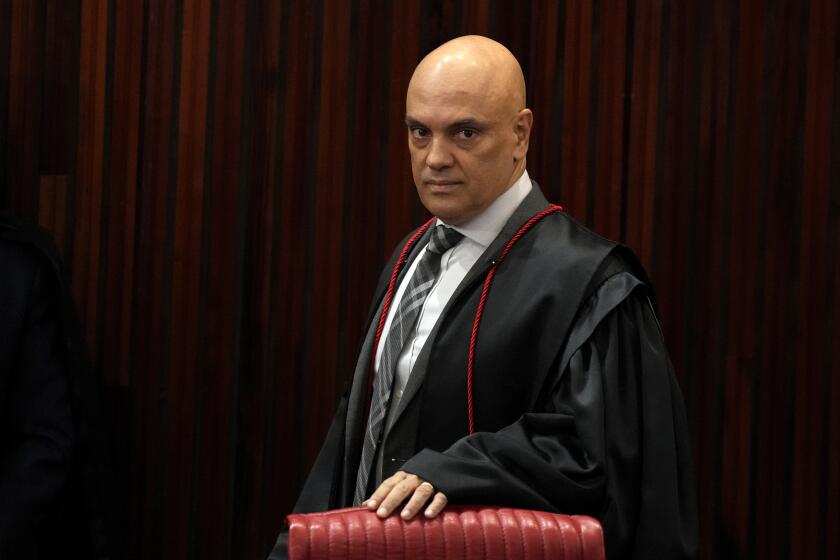Groups Seek Release of Mobil Plant Documents : Torrance: Refinery’s representatives argue against releasing voluminous information used for court suit that ended in consent decree.
Thousands of Mobil Oil Corp. documents classified as confidential during a landmark lawsuit should be reviewed to see whether they must be released under the state’s Public Records Act, an environmental attorney argued Thursday.
Acknowledging that such a review could take more than a year to complete, Trial Lawyers for Public Justice attorney Joseph Dunn told retired Judge Harry Peetris that the public’s need for information about Mobil’s Torrance refinery outweighs the inconvenience of a review.
“Expedience, I submit, is not a compelling reason” to maintain confidentiality,” said Dunn, who represents three environmental groups that say they want to use the records to educate the public. “Under California law, Mobil and the city must show good cause not to release the documents.”
Attorneys for Mobil, however, said public education is not sufficient reason to let Dunn’s clients see the material.
“The fact of the matter is that a desire to educate the public is not the kind of direct interest that entitles them to intervene” in the lawsuit, Mobil attorney Max Gillam said of the action filed by the city of Torrance. “Their intervention would exponentially expand this proceeding.”
The city filed its public nuisance lawsuit against Mobil in April, 1989, after a series of accidents, deaths and injuries at the Torrance refinery raised concerns about the plant’s impact on public health and safety.
Trial Lawyers for Public Justice--acting on behalf of Friends of the Earth, the California Public Interest Research Group, Environmental Action Foundation and Torrance residents Terry Reid and William J. Christenson--filed legal motions last month asking for 66,000 pages of documents that Mobil had released to Torrance’s attorneys as part of pretrial research.
Under a protective order signed by both sides at the start of the lawsuit, Mobil has designated as confidential at least 13,000 pages and has asked Peetris to restrict access to all of the material.
In October, the city halted its case just prior to trial, in return for Mobil’s agreement to submit to supervision by a safety adviser and phase out its use of highly toxic hydrofluoric acid over the next seven years.
Peetris was hired to oversee administration of that consent decree. On Thursday, he said he would rule later on whether any of the Mobil documents should become public record.
He already is considering a similar request filed in February by the Los Angeles Times and Copley Press.
Dunn urged Peetris to let the public see the documents.
“Their interest is their lives, their health, their safety,” Dunn said. “They want to know what risks they face.”
But Gillam argued that the safety adviser position created by the consent decree--a position that has not yet been filled--will provide sufficient public protection.
“This court and the safety adviser working together will effectuate the goal of making this the safest refinery possible,” said Gillam, noting that the safety adviser would be able to review the documents. “There cannot be an instance in the country where greater care has been given to the public than under this agreement.”
During questioning of the attorneys, Peetris said he believes opening all cases of general public interest to review could create havoc.
“If you release a tiger in a cage of baby chickens, you’re in trouble,” he said. “If you don’t have any controls, the justice system could come to a standstill . . . Conceivably, with this number of documents (in the Mobil case), we could spend a year doing this.”
More to Read
Inside the business of entertainment
The Wide Shot brings you news, analysis and insights on everything from streaming wars to production — and what it all means for the future.
You may occasionally receive promotional content from the Los Angeles Times.






